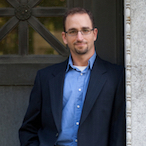Paul Hawken gave the keynote at the TechConKona conference on the Big Island of Hawaii last week, and struck a chord of tempered enthusiasm and hope. Hawken began his speech by saying that Michael Kramer, a local sustainability advocate and socially responsible investment advisor, mentioned to Mr. Hawken that in Hawaii, in terms of sustainability, we might be 10 years behind the San Francisco Bay Area (Mr. Hawken's home and place of business).
"That is subject to interpretation," said Hawken. What we have in Hawaii, according to Hawken, is smallness, and that smallness may be the key to the scale at which real change can happen.
Mr. Hawken mentioned Bill McKibben's article in Rolling Stone a couple of weeks ago, in which he noted some jaw-dropping stats, mostly pertaining to human population. About 7 months ago, on Halloween of 2011 to be just about exact, the human population crossed the 7 billion person mark. Depending on whose projections you read, the population is supposed to add anywhere from 2 to 8 billion more people in the not-too-distant future before scientists expect growth to level off.
But according to Hawken, it's not the number that counts. It's the impact. The impact per person has increased 500-1000 times. "We have more impact on the world around us in five minutes than our ancestors had in a year," he said.
Mr. Hawken talked about his recent adventure to the Greenland ice shelf to look at the cutting edge science behind climate modeling. One of the most interesting aspects was the infusion of something tropical: coconut oil. It's used to lubricate the drill that goes into the ice shelf to get samples. They can't use petroleum because, as it does literally to many other environments, it figuratively pollutes the data in this case.
What they found, looking at the data, was a timeframe in global history that was quite different geographically and climatically from the present. London was completely underwater. In the Thames estuary, there were hippopotamus. There were lions and antelope cruising across parts of Europe, and Scandinavia was an island. And this period had carbon dioxide levels that we, as a species, passed 40 years ago.
To compound the problem, the financial situation around the world is not going in the right direction. "Money is moving away from green technology now," said Hawken. "It's moving toward Angry Birds and apps. Things that make money right away. We're spending money in extraordinarily wasteful and misplaced ways. Our priorities are just not there."
"The solution is life," said Hawken. In green chemistry, the layman's explanation is putting molecules together that want to be together. Hawken, along with Janine Benyus, author of Biomimicry, and John Warner, father of green chemistry, got to work developing a solar panel made with the principles of biomimicry and green chemistry.
Made from 90 percent recycled plastic bottles, and 100 percent recyclable, OneSun's panels can be made anywhere in the world for the same cost. The key is that they are easy to assemble and more durable than current models. The energy return on energy invested on these solar panels is 200:1, whereas coal is 60:1, and corn ethanol, which is highly dependent on subsidies and genetically engineered crops, is 1:1.
Production has increased by a factor of five, but the market capitalization of solar firms has been crushed. Venture capitalists saturated the market, lost many of the bets they made in the past four years, and now, no one will write a check for solar. "This includes the Chinese manufacturers," said Hawken.
"The gift of being here in Hawaii," said Hawken, "is that we KNOW we're on an island. Everyone else on earth is just fooling themselves thinking they aren't."
The Big Island, where the conference was held, is making great strides in sustainability, with 49 percent of its energy last year coming from clean sources, mostly geothermal.
It's a systemic issue…a solar panel is a band-aid ("but still do it," said Hawken), an electric car is a band-aid ("and do that, too," said Hawken), but what we need to do is everything--a total shift in our thinking.
"We're stealing the future, selling it, and calling it GDP," said Hawken. "Our choice is to steal it or heal it. There is nothing written anywhere that says we have to destroy the future. Throughout history, indigenous peoples have worked together to increase productivity of the resources we have. What we have now, instead, "really is a war on the future."
"We cannot make this transition unless we're willing to fail again and again," he said. "We need to honor those people who are willing to fail."
-------------------------------------------------------------------------------------------

Scott Cooney, Principal of GreenBusinessOwner.com and author of Build a Green Small Business: Profitable Ways to Become an Ecopreneur (McGraw-Hill, November 2008), is also a serial ecopreneur who has started and grown several green businesses and consulted several other green startups. He co-founded the ReDirect Guide, a green business directory, in Salt Lake City, UT. He greened his home in Salt Lake City, including xeriscaping, an organic orchard, extra natural fiber insulation, a 1.8kW solar PV array, on-demand hot water, energy star appliances, and natural paints. He is a vegetarian, an avid cyclist, ultimate frisbee player, and surfer, and currently lives in the sunny Mission district of San Francisco. Scott is working on his second book, a look at microeconomics in the green sector. In June 2010, Scott launched GreenBusinessOwner.com, a sustainability consulting firm dedicated to providing solutions to common business problems by leveraging the power of the triple bottom line. Focused exclusively on small business, GBO's mission is to facilitate the creation and success of small, green businesses.














